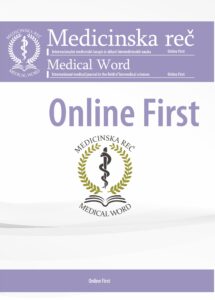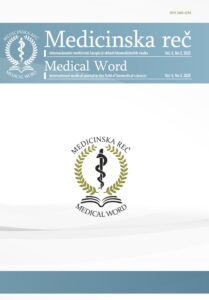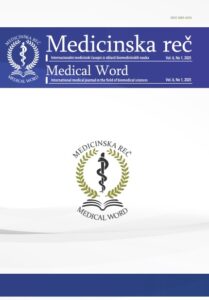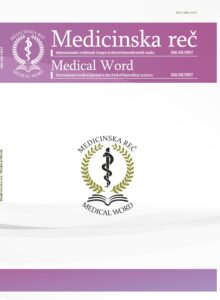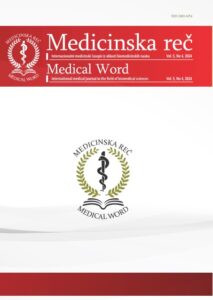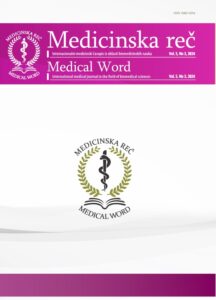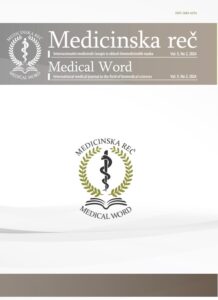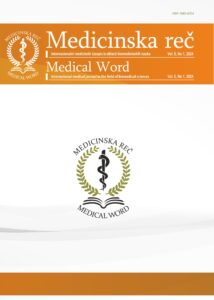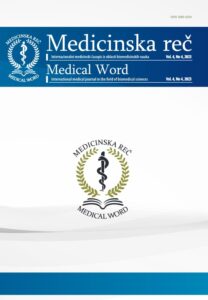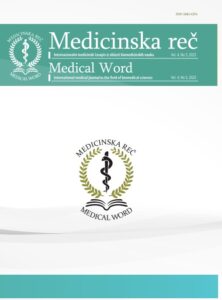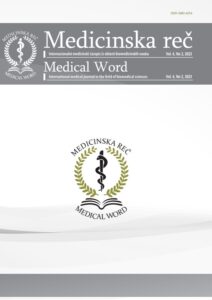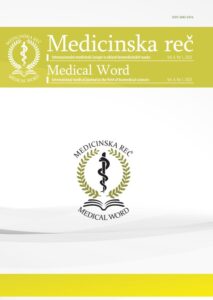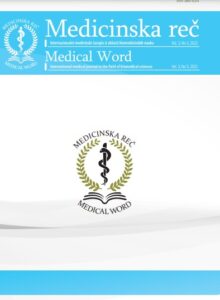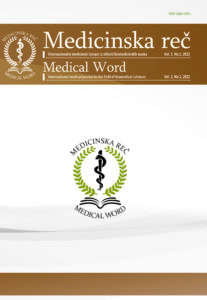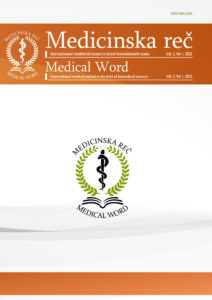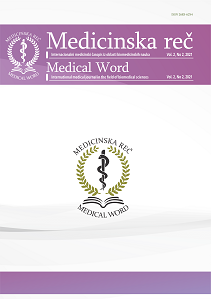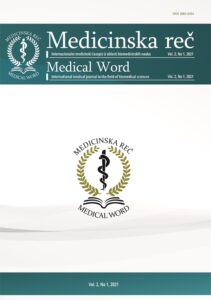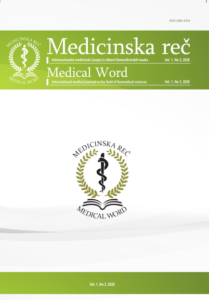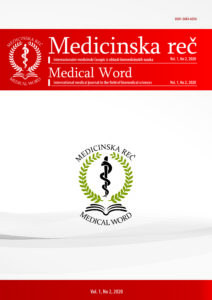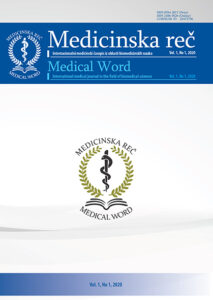Depression and assertiveness in alcoholics
Medical Word 2022; 3(1): 1–9
https://doi.org/10.5937/medrec2201001R
Original article
Ana Ristić, Dragan Vukadinović
Abstract
Harmful consequences of alcohol consumption, both for the individual, and their family, but also for the wider community, have acquired an epidemic character in recent decades. People suffering from alcohol dependence often have symptoms of depression. Earlier theoretical models of depression, found in these people, positioned it as one of the initial symptoms, even etiological factors in the development of alcoholism. Modern research on the neurotransmitter and morphological level describes the obvious changes that alcohol consumption causes, especially after long-term use, and is presented, among other things, with the symptoms of depression, that are, the analyses of his assertive capacities to oppose negative lifestyles.
The conducted research analyzed the moderation and assertive capacities of 30 patients at the Department of Alcoholism, within the Special Hospital for Psychiatric Diseases “Gornja Toponica”. A statistically significant increase in the presence of depressive symptoms in these individuals was confirmed. At the same time, by applying the assertiveness scale, a statistically significant lower level of assertive capacities of these persons was ascertained. The analysis of the results confirmed the thesis analyzed in other papers so that when admitting alcoholics for treatment, it would be necessary to introduce depression screening in routine clinical practice with diagnostic evaluation repeated after four weeks, in order to differentiate alcohol-induced depression from secondary depression. Treating secondary depression could help prevent the recurrence of alcoholism. In addition to the above, assertive training within the psychotherapy of alcoholism of these patients and work on increasing their assertive capacities would be in the direct function of maintaining abstinence.
Key words: alcoholism, depression, assertiveness
Literatura
- Berger J. Psihodijagnostika. Beograd: Zavod za udžbenike; 2014.
- Bern E. Koju igru igraš – inventar igara koje ilustruju opšta načela transakcione analize. Beograd: Beoknjiga; 2003.
- Brietenfeld D, Wolfl D, i sar. Alkoholizam – sprječavanje, liječenje, oporavak, PIPA – o Problemima Izazvanim Pijenjem Alkohola. Rijeka: HSKLA; 2010.
- Ćirić Z, Dimitrijević B. Osnovi sudske psihijatrije i sudske psihologije. Niš: SKC Niš; 2009.
- Čovičković Šternić N. Vodič dobre prakse za tretman alkoholizma. Beograd: Ministarstvo zdravlja Republike Srbije; 2013.
- Gojković V, Milovanović R. Prikaz profila prestupnika alkoholičara dobijen na testu MMPI. NBP 2002; 7(2): 87-96.
- Jovanović M. Anatomija adikcije. Kragujevac: Medicinski fakultet; 2002.
- Kovačević M. Zavisnost od supstanci – etiologija. Engrami, 2002; 24(3-4): 143-55.
- Mandić-Gajić G. Sekundarna depresija kod alkoholičara – klinički značaj. Vojn Sanit Pregl 2005; 62(9): 671-7.
- Nenadović M. Narkomanije i alkoholizam. Beograd: Medicinski fakultet; 1995.
- Popović V. Alkoholizam – epidemija našeg doba. Niš: Društvo bihevioralne prakse; 2007.
- Preradović M. i sar. Bolesti zavisnosti. Beograd: Vojna knjiga; 2005.
- Stojković Lj, Sedmak T. Alkoholizam – terapijski koncepti i praksa. Beograd: Zavod za udžbenike i nastavna sredstva: 2003.
- Strowig AB. Relapse determinants reported by men treated for alcohol addiction: the prominence of depressed mood. J Subst Abuse Treat 2000; 19(4): 469–74.
- Vučković N. Droga i medicina. Novi Sad: Futura; 2009.
- Vukadinović D. Socioepidemiološke karakteristike pacijenata lečenih na odeljenju za alkoholizam i odeljenju za narkomaniju SBPB G. Toponica. Zbornik radova XXVIII simpozijuma o bolestima zavisnosti, Vrnjačka Banja, 2012.
- Zdravstveno statistički godišnjak Republike Srbije za 2011. godinu, Institut za javno zdravlje Srbije „Dr Miloš Jovanović Batut”, 2012.


